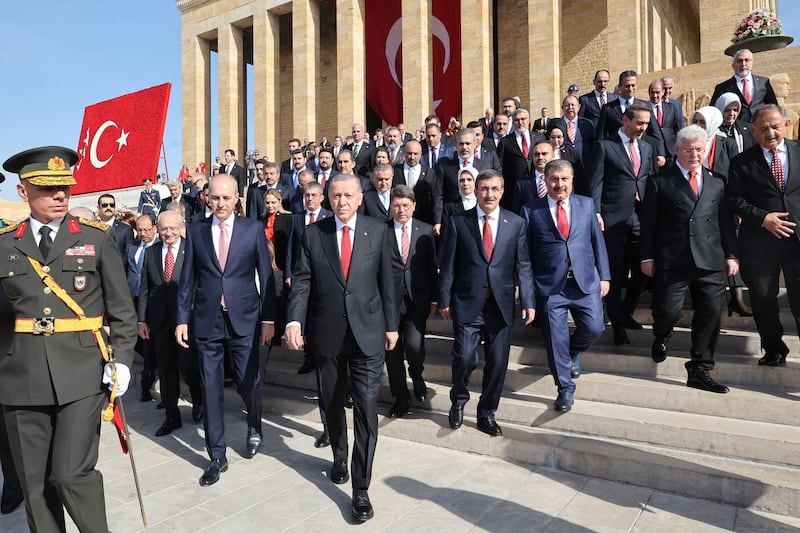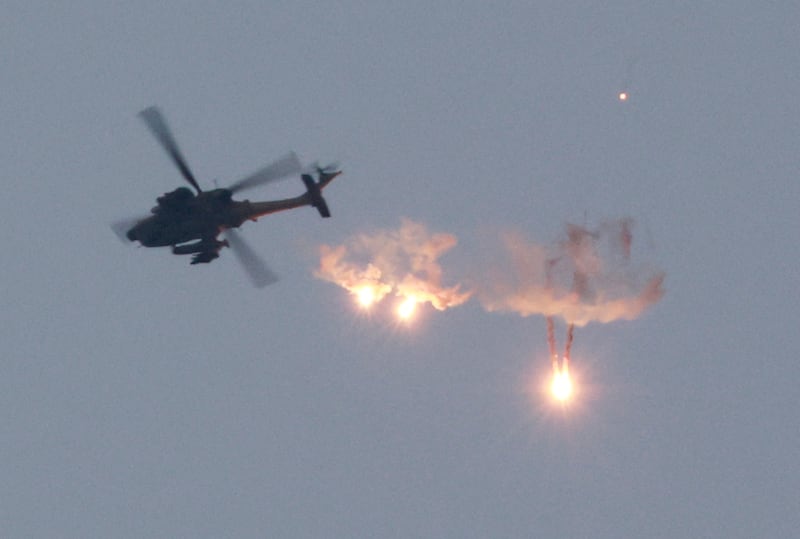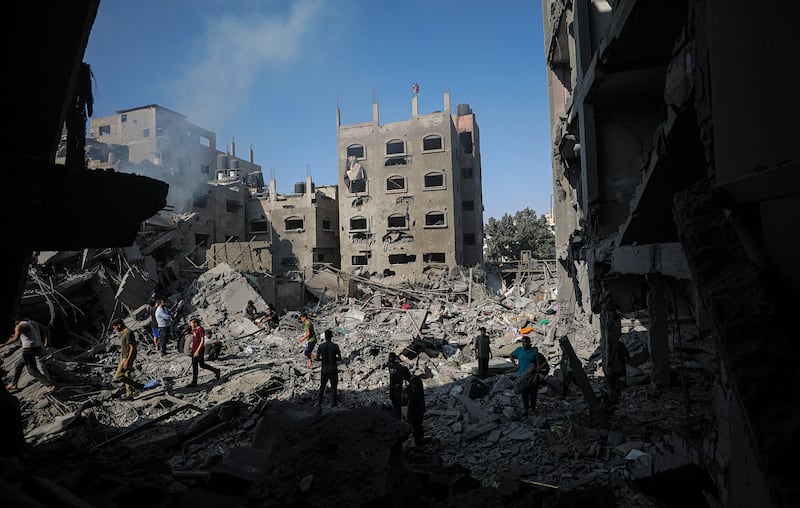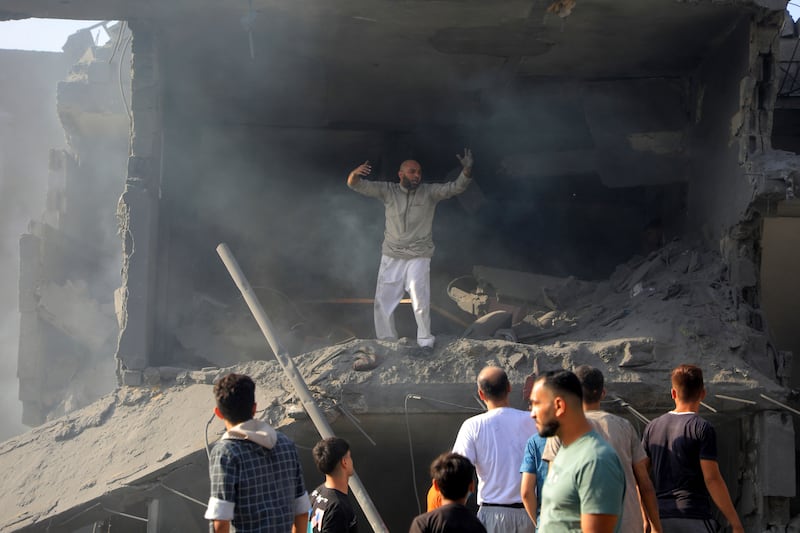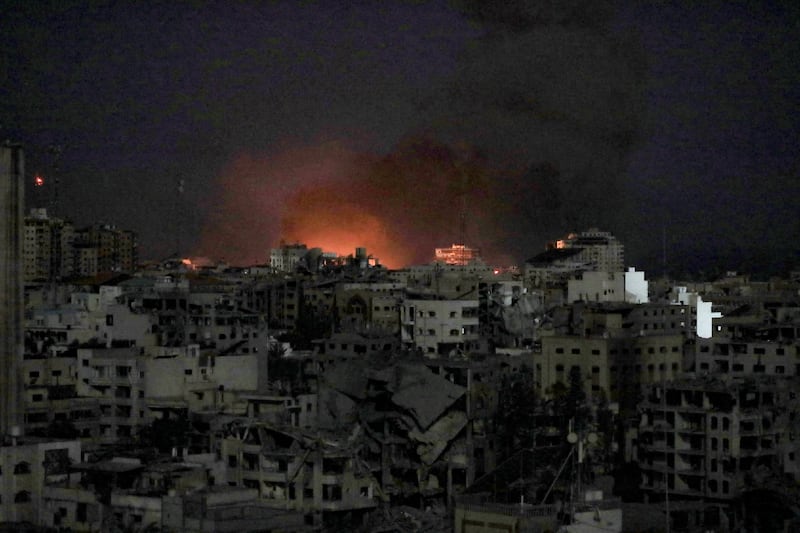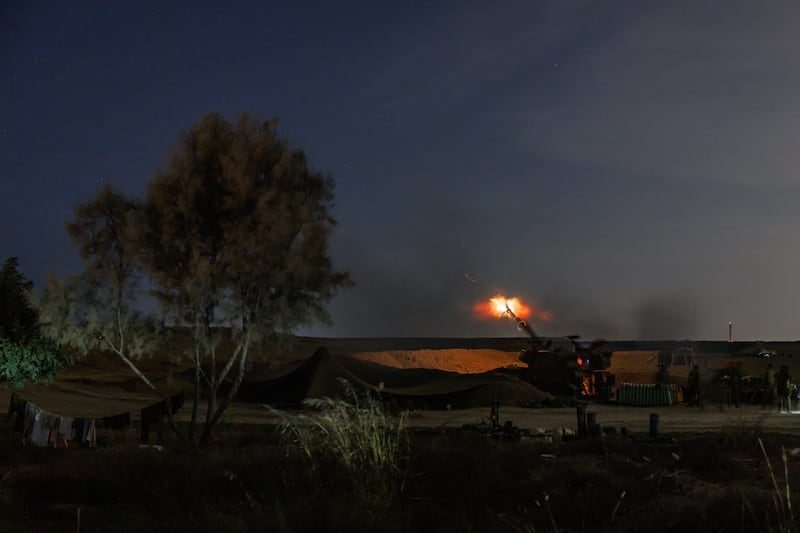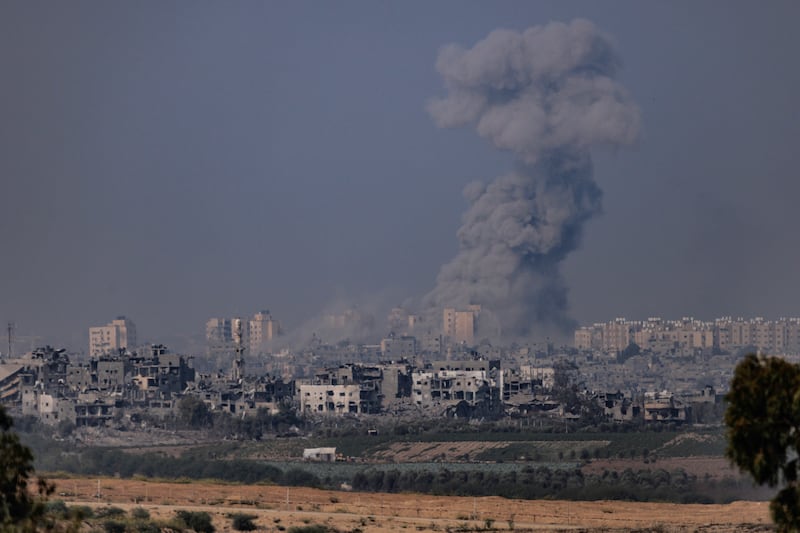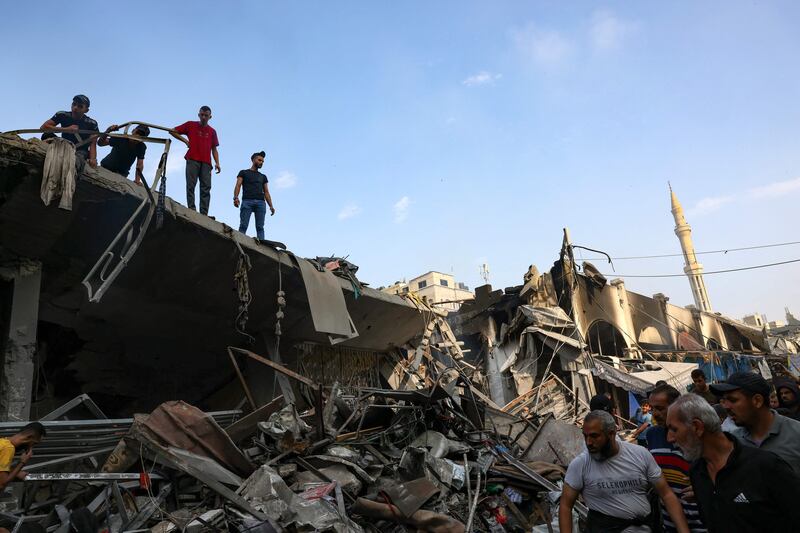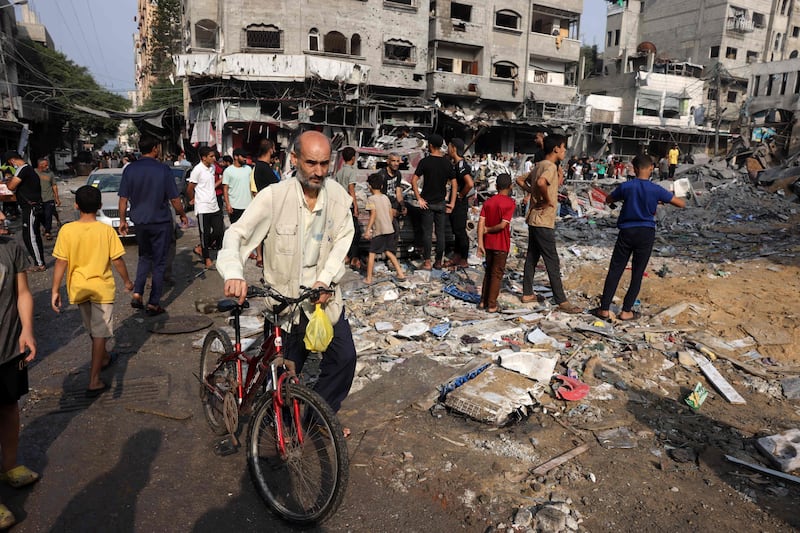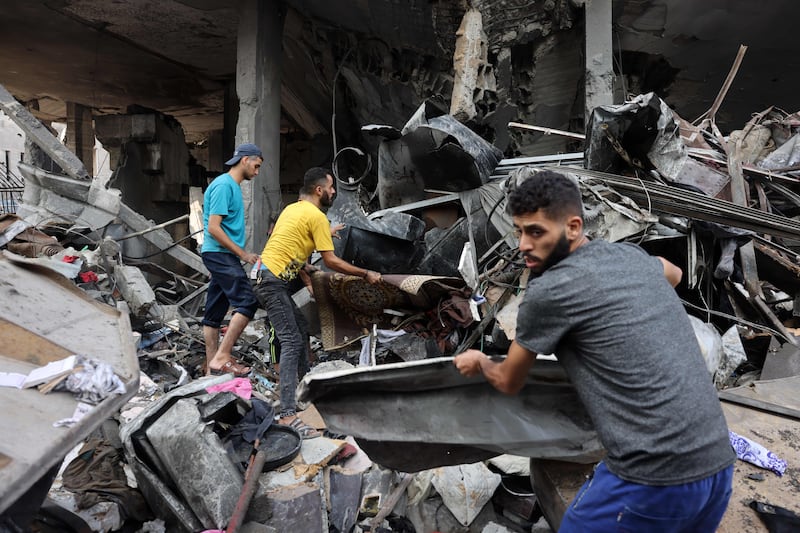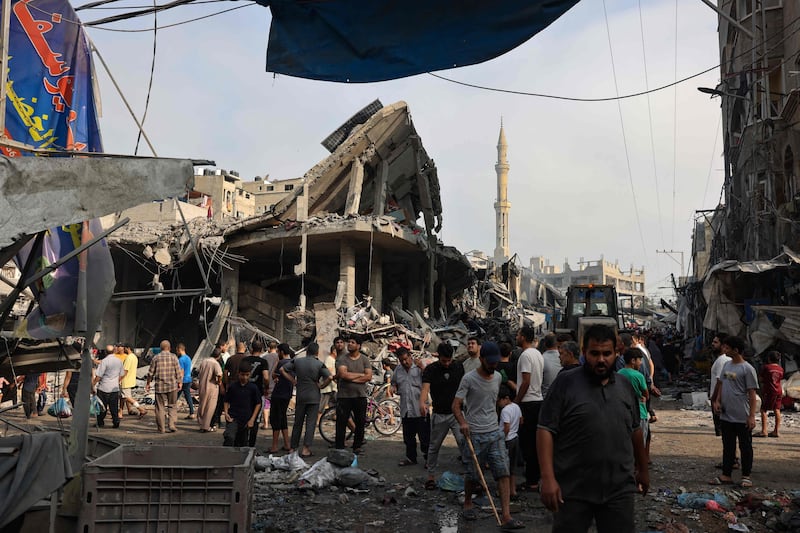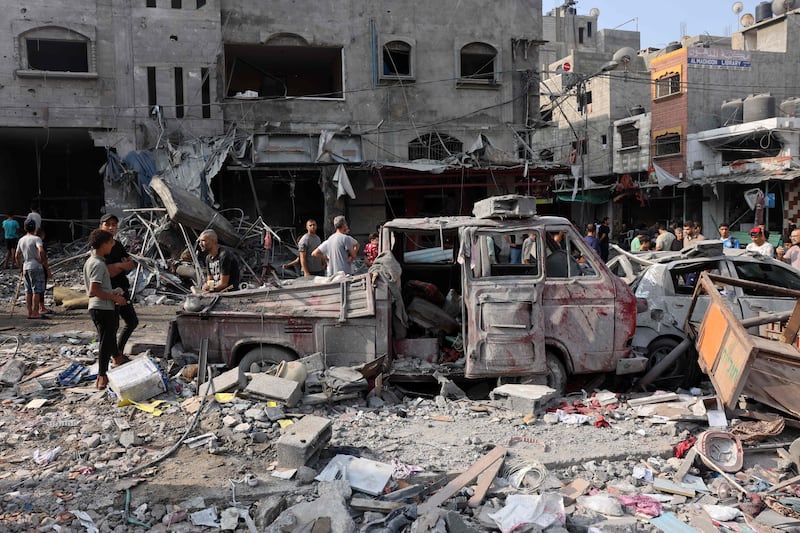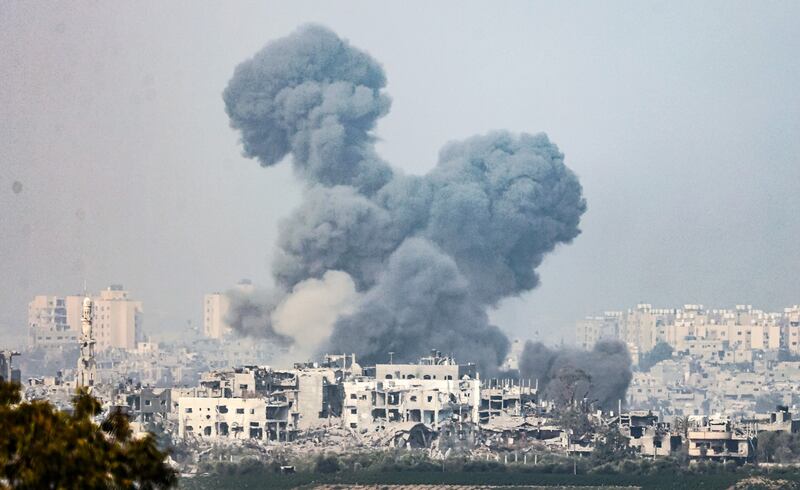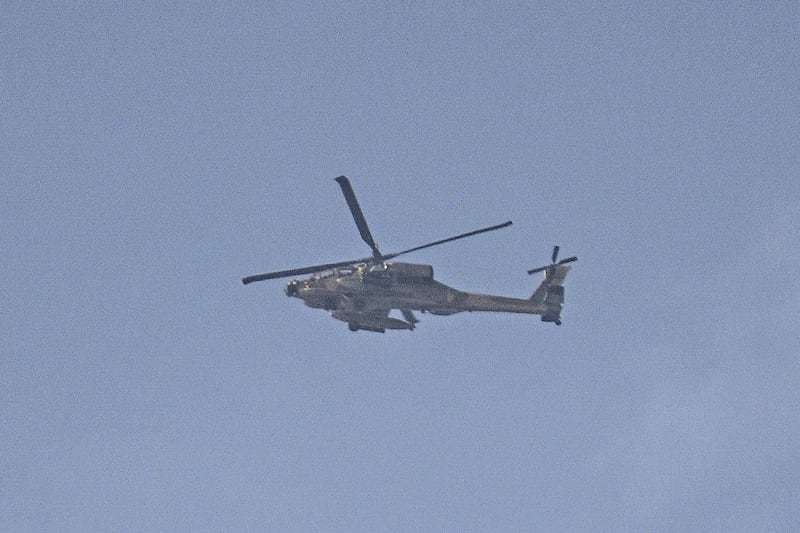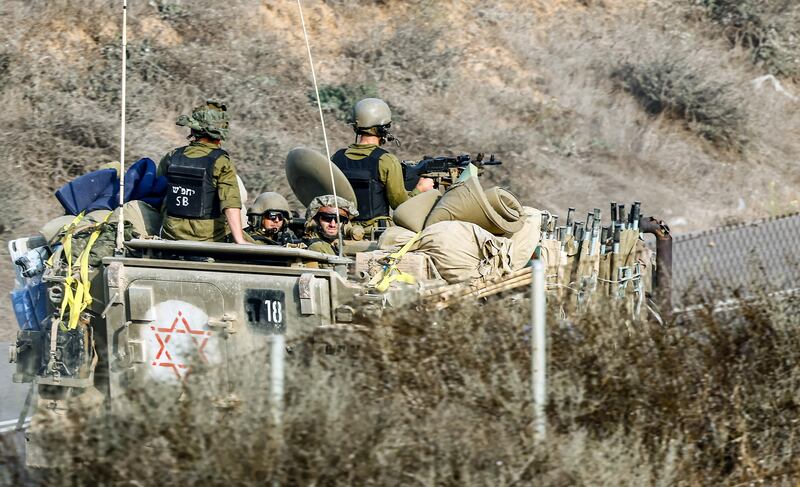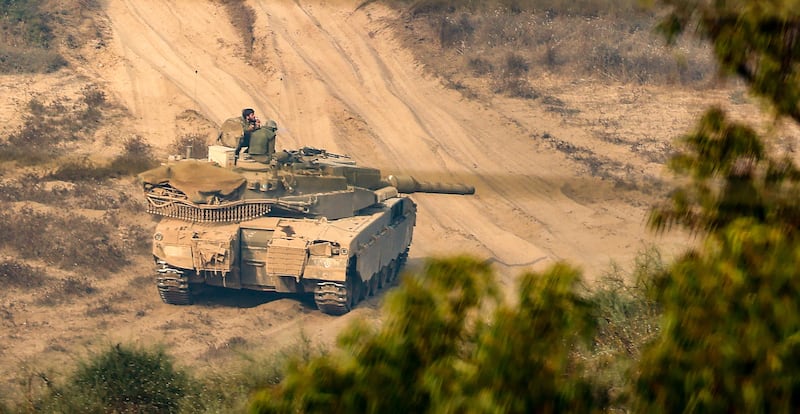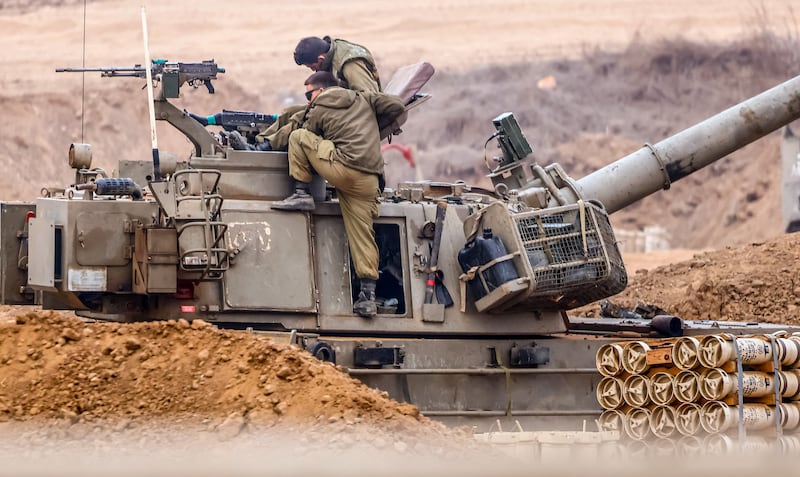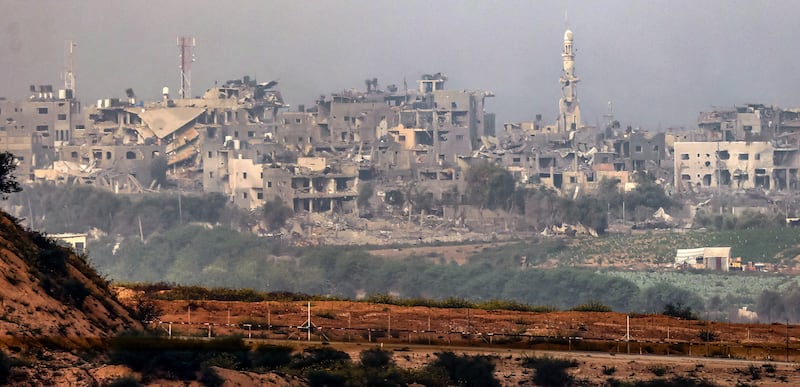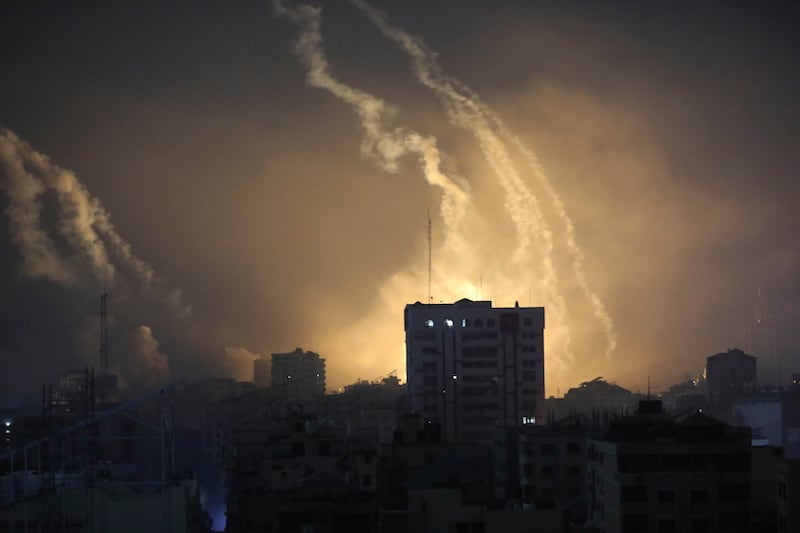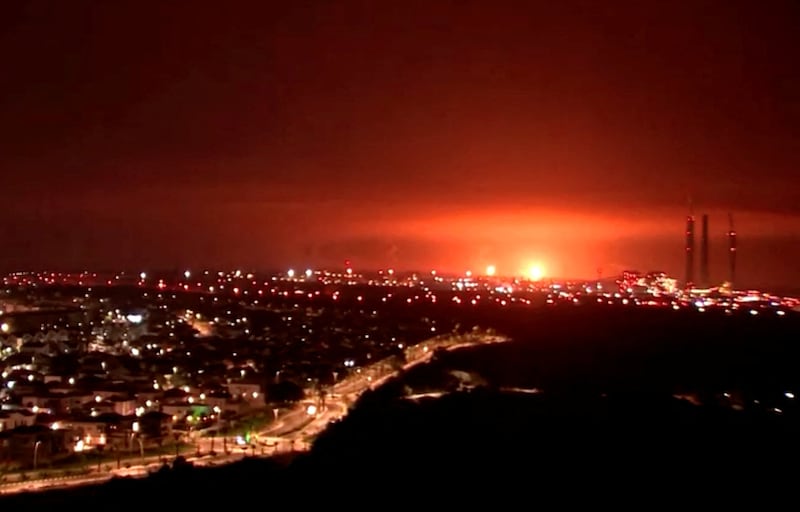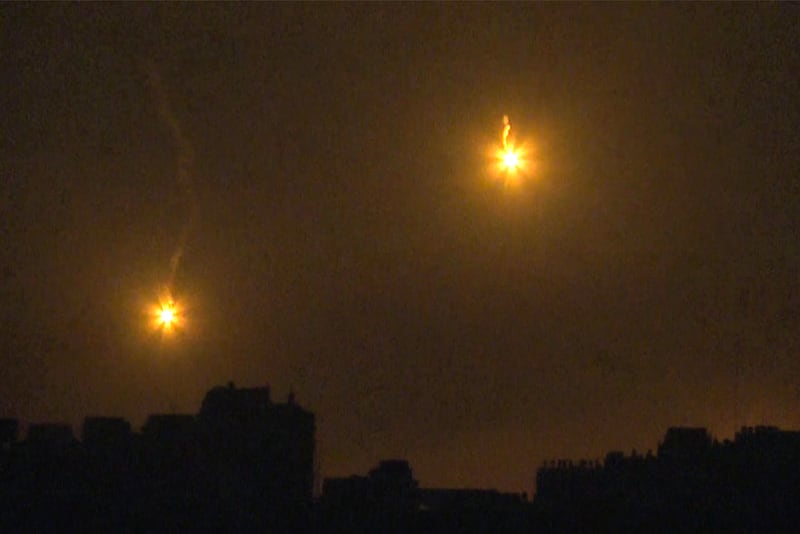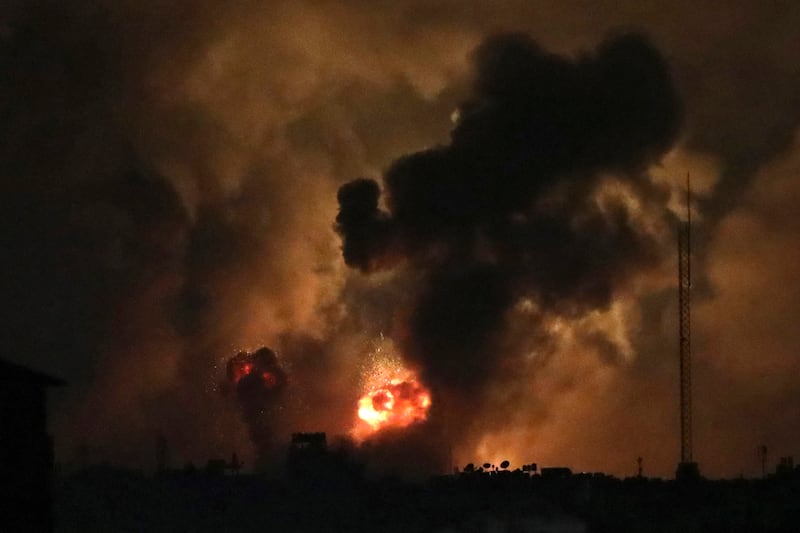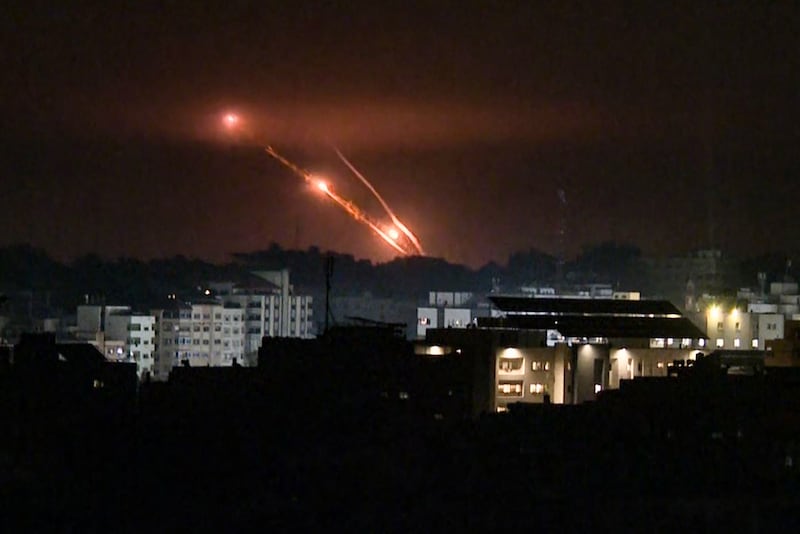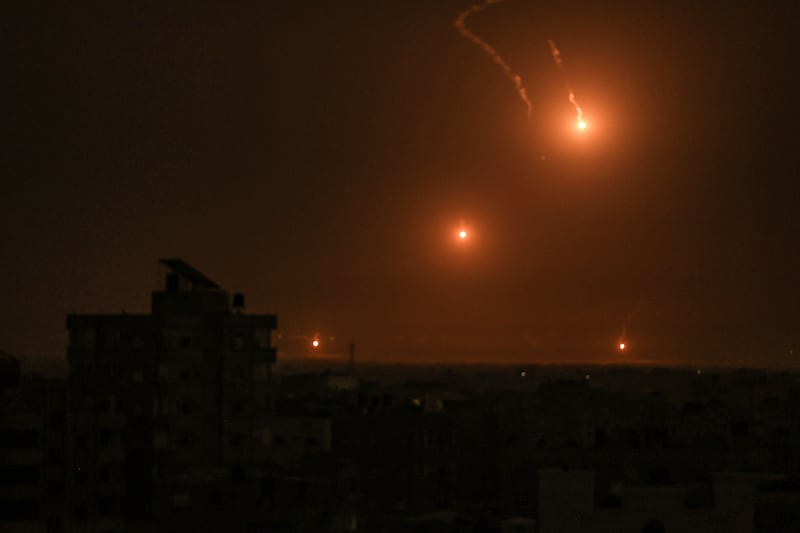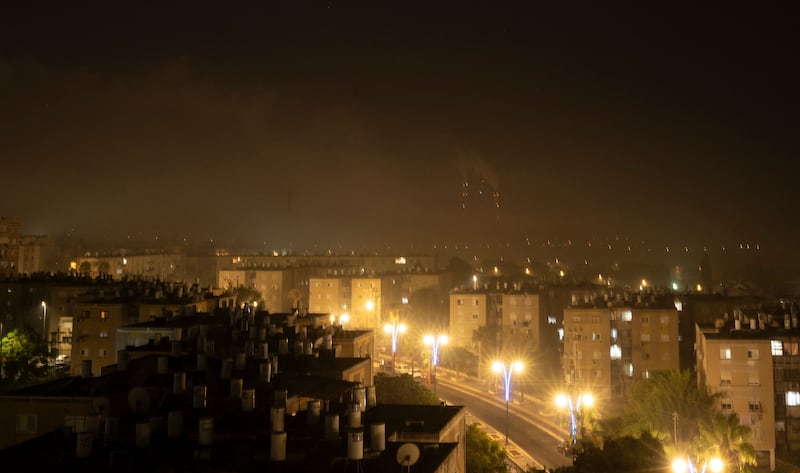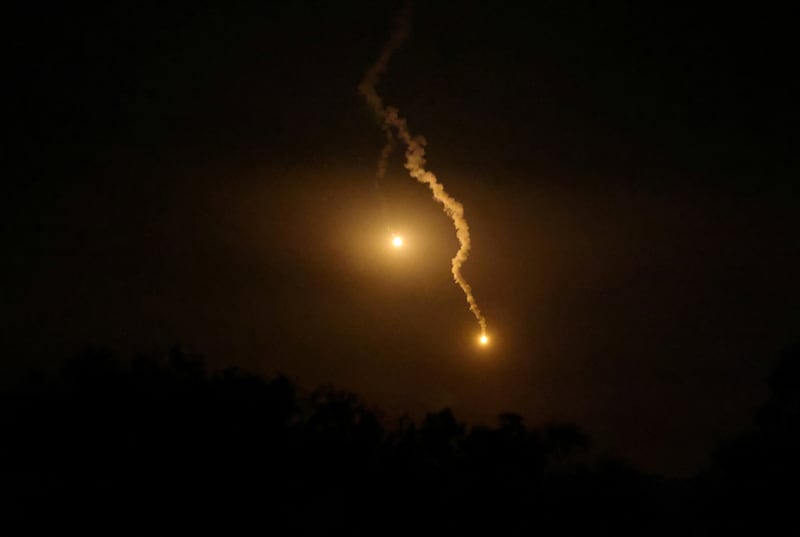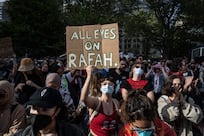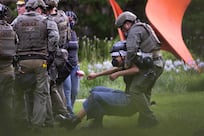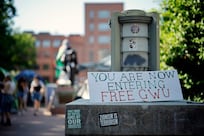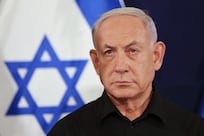On the weekend of Turkey’s 100th birthday, the governing Justice and Development Party (AKP) held a huge rally at a defunct Istanbul airport named after the country’s founder, Mustafa Kemal Ataturk, with President Recep Tayyip Erdogan inviting all Turks to attend.
One might have expected a celebratory parade and marching band, paeons to the famously dapper war hero, founder and statesman, and recitations of his most memorable quotes.
There was just one problem: the event on Saturday had nothing to do with the centennial, but sought to express support for Palestinians in Gaza facing an Israeli onslaught that has now killed some 9,000 people, including 3,500 children.
The AKP’s vocal solidarity with the region’s suffering Muslims underscores just how far Turkey has travelled from its founder’s pro-western stance. Days after describing Hamas militants as “freedom fighters”, Mr Erdogan at the rally charged Israel with war crimes and said the “main culprit” behind the Gaza “massacre” is the West.
It’s not much of a stretch. US President Joe Biden, supposed leader of the western world, has questioned the reported Gaza death toll and refused to set red lines for Israel, essentially giving its military carte blanche.
As Israel cut off Gaza communications last week and launched an initial ground incursion, the US joined a little more than a dozen countries in voting against a UN resolution for a truce, in contrast to 121 states in favour. No surprise, then, that more than eight out of 10 Israeli Jews (83 per cent), when asked if Palestinian civilians’ suffering should be considered in Israel’s Gaza war plan, said “not at all” or “not so much”.
Even Israel-friendly western observers are expressing fears that Washington’s stand could backfire. “America will be blamed around the world for every civilian death,” Financial Times’ editor Edward Luce warned on X.
On the weekend, activists around the globe organised pro-Palestinian rallies – in the US, UK, Canada, India, Italy, Malaysia, New Zealand and beyond. In Turkey, some shops banned Israeli goods and conservatives called for boycotts of US brands such as Coca-Cola, McDonald’s and Starbucks.
This posture has turned more aggressive in recent days. An Istanbul bookstore on Friday barred entry for Jewish people and an angry crowd ransacked a Starbucks in Gaziantep. The next day, a Turkish man stabbed a worker at a Burger King in Adana, saying the food contained baby’s blood, while another bashed the windows of a McDonald’s in Mersin with an axe.
It’s been more than four decades since Edward Said wrote about “age-old western prejudices about Islam [that] dehumanised us, reduced us to the status of a barely tolerated nuisance”. Yet a renewed appreciation for this Orientalist bias seems to be driving many Muslims and their allies to take an ideological position against the West and its purported morality.
“The US-led order is just so, in my view, transparently hypocritical and completely divorced from the Global South and a lot of the rest of the world who have genuine sympathies, not to Hamas, but to the Palestinian cause,” Shadi Hamid, a Brookings Institution senior fellow and The Washington Post columnist, said on a podcast last week. “[Western] people just don’t like Arabs, don’t like Muslims … their lives don’t matter as much," he claimed.
Many predicted that an over-aggressive Israeli response to Hamas’s gruesome October 7 assault would have the opposite of its intended impact, and we’re already seeing growing global anger as attitudes harden. Could it lead to increased radicalisation?
Either way, we are already seeing signs of a broader war taking shape. Violence has surged in the West Bank, where Israeli troops attacked the Jenin Brigades militant group amid reports of a surge in arms smuggling. On Saturday, Hezbollah launched a rocket barrage on Israel from southern Lebanon, prompting Israeli attacks on both Lebanon and Syria the next day.
Iran-backed militias have launched more than 20 drone attacks on US bases in Iraq and Syria. The US, in turn, has attacked Iran-backed groups in Syria and a US naval destroyer blew up a rocket from Yemen headed towards Israel.
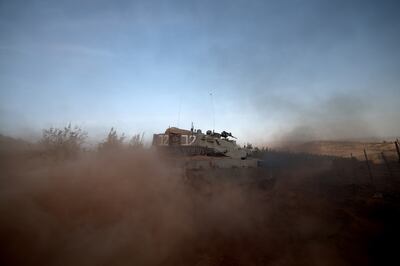
Tehran appears to be hoping to bait the US into direct conflict, and the arrival of the USS Eisenhower in waters off Iran’s coast this week suggests some US interest. One starts to wonder, in a possible war between the US and Iran, where would Turkey stand?
The US has an Air Force unit and nuclear weapons stationed inside Nato member state Turkey, so the answer seems pretty clear. But in aligning with the US, Ankara would be turning against Palestinians and countless pro-Palestinian Turks. What’s more, on Monday an Israeli missile hit Gaza’s only cancer hospital, which Turkey’s aid agency built for $70 million.
Commentator Ibrahim Karagul, known for supporting the AKP, foresees a regional war that irrevocably ends western global leadership. “Just like we fought the British in 1917, we will fight Israel like that today,” he said on X over the weekend.
The last time Turkish forces defended Levantine land, they were led by Turkey’s founder. The German-allied Ottomans had lost Jerusalem, its leadership had evaporated and the British marched north to Syria unimpeded; Ataturk described Ottoman resistance as “like a cotton thread across their path”. But after a retreat to Aleppo, he rallied the Ottomans’ Thunder Command and halted the British advance near Turkey’s present-day border.
Mr Erdogan visited Ataturk’s mausoleum on Sunday morning before Turkey, finally, held its centennial event on the Bosporus, with drones and fireworks and a naval parade. But the celebration was muted; several concerts, a gala reception and other festivities were cancelled, with organisers citing the tragedy in Gaza.
With local elections less than five months away, Mr Erdogan may soon need to decide whether to take an Ottomanesque position or a more Kemalist stance on the Middle East crisis. He surely knows which his base would prefer.
During his Saturday speech, Mr Erdogan asked the crowd if they were ready to help Palestinians defend their homeland. “We did it yesterday,” he told a sea of Turkish flags. “We will do it tomorrow too, Inshallah.” The sea responded, chanting: “Turkish troops in Gaza.”
